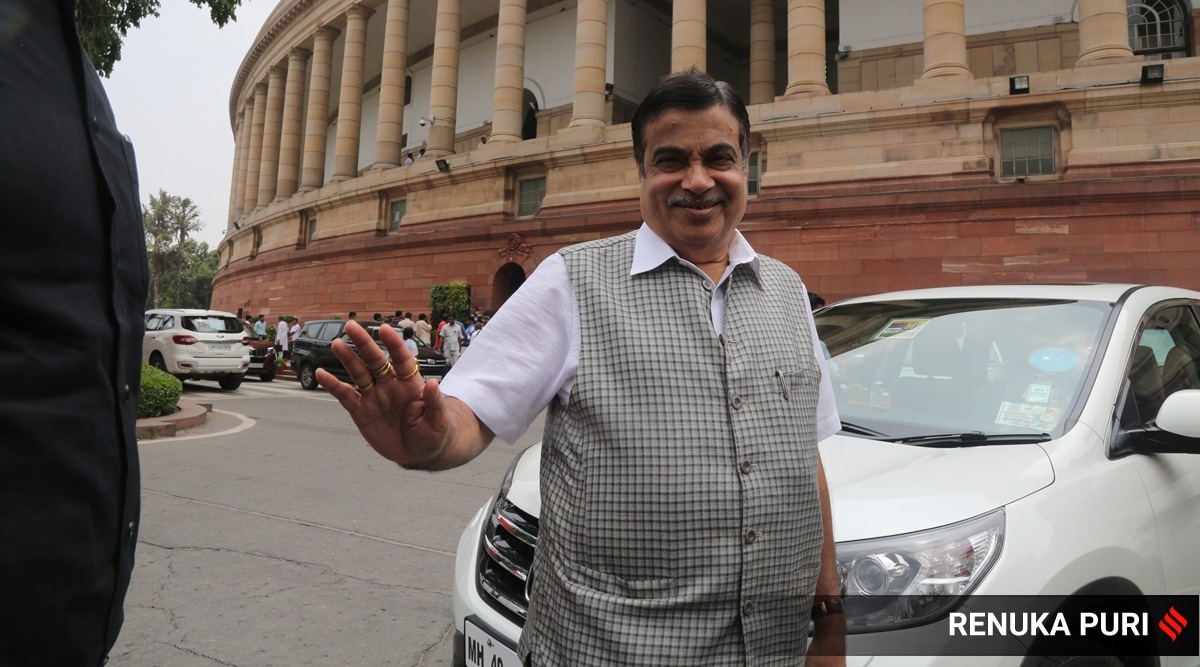 Nitin Gadkari in Parliament (Express photo/Renuka Puri)
Nitin Gadkari in Parliament (Express photo/Renuka Puri) Union Minister Nitin Gadkari on Thursday will brief both Houses of Parliament about the contours of the vehicle scrapping policy, which was announced in Union Budget this year.
At 12 noon in the Lok Sabha and thereafter at 2 pm in the Rajya Sabha, Gadkari, the Road Transport and Highways Minister, is expected to talk about the much-touted policy.
Under the policy, old vehicles are supposed to undergo mandatory fitness tests in automated fitness centres to be set up across India. The government has sanctioned 26 such centres to be set up across India either by state governments, or under PPP, or even by private players directly. Failing the test, the vehicles are to be scrapped. Government vehicles older than 15 years are also likely to be marked for mandatory scrapping. The cost of re-registration of older vehicles, like after reaching 15 years, will be significantly increased in a bid to dissuade vehicle owners.
Rules governing the setting up of automatic fitness centres and scrapping centres by vehicle manufacturers will also take care of possible “conflict-of-interest”, sources said. The policy is expected to give boost to automobile manufacturing industry as well as slowly weed out older vehicle fleet in India. Commercial vehicles are to be scrapped after 15 years while personal vehicles older than 20 years will fall in the ambit of scrapping.
The certificate of scrapping issued by the scrapping centres will be transferable and tradable. Registration charges and road tax may be waived on purchase of new vehicle after the scrappage of an old, unfit one. Automobile manufacturers have assured the government that the certificate will also entail a certain percentage of discount up to five per cent, depending on carmakers and prevailing competition.
Earlier this week, the Ministry of Road Transport and Highways issued notification that mandated testing of vehicles upon reaching 15 years. The cost of re-registration of the vehicles (every personal vehicle appears for a reregistration after it reaches 15 years) have been proposed to be increased by around eight to 10 times depending on the type of vehicle. The rules will come into effect from October this year.
The vehicle scrapping policy will be rolled out in phases, and through consultations with all stakeholders. Like it has done in Europe and the United States in the post-recession economy, vehicle scrapping policy in India is also expected to boost manufacturing in automobile and allied industries, besides weeding out old, polluting vehicles from the country’s fleet. Newer vehicles are also more fuel efficient, so the government has linked the policy with possible reduction of India’s oil import bill.